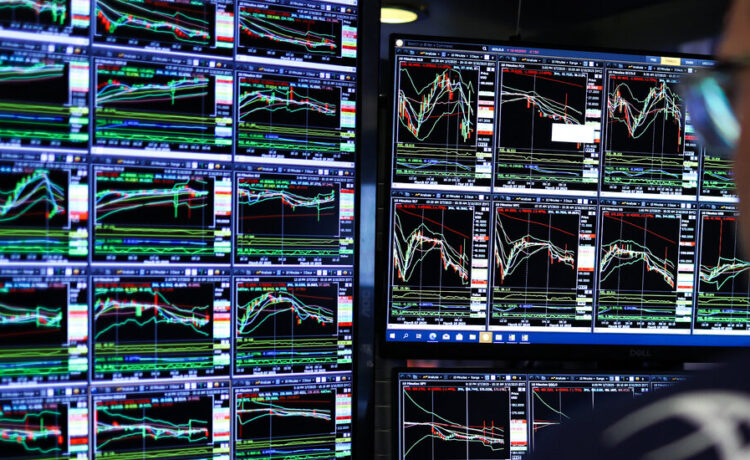Fears over the future health of the global economy are continuing to rattle markets around the world, as President Trump’s resolute commitment to hold the line on tariffs fueled investor concerns about inflation and a pullback in consumer spending.
After the S&P 500 suffered its worst day of the year on Monday, the sell-off continued into Asia trading on Tuesday.
Asia markets fell sharply during morning trading before recovering some of their losses later in the day. Japan’s benchmark Topix index finished more than 1 percent lower on Tuesday, weighed down by declines in technology stocks. Stock markets in South Korea and Taiwan also fell more than 1 percent.
Equity markets in China fared slightly better. Shares in Shanghai, Shenzhen and Hong Kong edged higher on Tuesday.
Investors have become increasingly cautious about the U.S. stock market in recent weeks as President Trump has flip-flopped on tariffs, causing confusion and uncertainty.
Growing unease about the inflationary effects of the tariffs, coupled with a broadly darkening mood about the economy, provided the catalyst for a sell-off in a market that investors have long worried was overvalued.
While current economic data has remained robust, surveys of consumers, business leaders and economists are growing pessimistic. Analysts at JPMorgan now say there is a 40 percent chance for a global recession.
The sell-off highlighted how carefully global markets are parsing the president’s public remarks about the economy.
Analysts pointed to Mr. Trump’s comments from an interview that aired on Sunday when he refused to rule out the possibility of a recession, stating that the economy is undergoing “a period of transition.” The Trump administration has offered little to assuage investors’ fears, continuing to drive a hard line on tariffs on the major U.S. trading partners Canada, Mexico and China.
In a research note on Tuesday, Takahide Kiuchi, executive economist at Nomura Research Institute, said financial markets were caught off-guard by Mr. Trump’s “unwavering” commitment to push ahead with tariffs despite the economic pain that it might cause.
“Even if the tariffs lead to inflation and economic deterioration, President Trump is likely to place the blame squarely on former President Biden rather than acknowledge any shortcomings in his own economic policies,” Mr. Kiuchi wrote.
Technology stocks tumbled in the United States on Monday. Tesla shares plunged more than 15 percent, as investors assess falling sales and worry that the company’s chief executive, Elon Musk, has been distracted by his role in the Trump administration. Shares of Alphabet, Apple and Nvidia each fell more than 4 percent.
Technology shares also declined in Japan, with Sony, SoftBank, Hitachi and Fujitsu each falling more than 2 percent on Tuesday. Other tech declines in Asia included the chip giant Taiwan Semiconductor Manufacturing Company and the Apple supplier Foxconn in Taiwan, both down more than 2 percent.
Shares of Japanese automaker Toyota Motor fell nearly 3 percent, while South Korean automaker Hyundai Motor dipped slightly. Japanese and South Korean automakers are expected to be particularly damaged by a potential 25 percent tariff on foreign cars that Mr. Trump has indicated could take effect as soon as April 2.
In a note on Friday, Goldman Sachs said the stocks making up the main equity indexes in Taiwan, South Korea and Japan would be the most exposed in Asia if the Trump administration imposed a universal tariff on trading partners.
Bruce Pang, an adjunct associate professor at the Chinese University of Hong Kong business school, said Chinese markets are moving out of step with the United States and other global counterparts. Chinese shares are getting a lift from the government’s ambitious target of around 5 percent growth and recent business-friendly comments about supporting the private sector and entrepreneurship from top leaders.
“These factors collectively help mitigate the headwinds arising from the Trump administration’s news flows,” he said.
In the year to date, shares of Chinese companies listed on the Hong Kong Stock Exchange have risen about 20 percent, compared with a 4 percent slide on the S&P 500.
Late on Monday, Delta Air Lines issued another warning signal about a worsening economy. The airline announced that it had cut its profit forecast for the first three months of the year, saying that rising economic worries among consumers was denting demand for air travel.
In a statement, Delta blamed the decline in demand on a “recent reduction in consumer and corporate confidence caused by increased macro uncertainty.”













